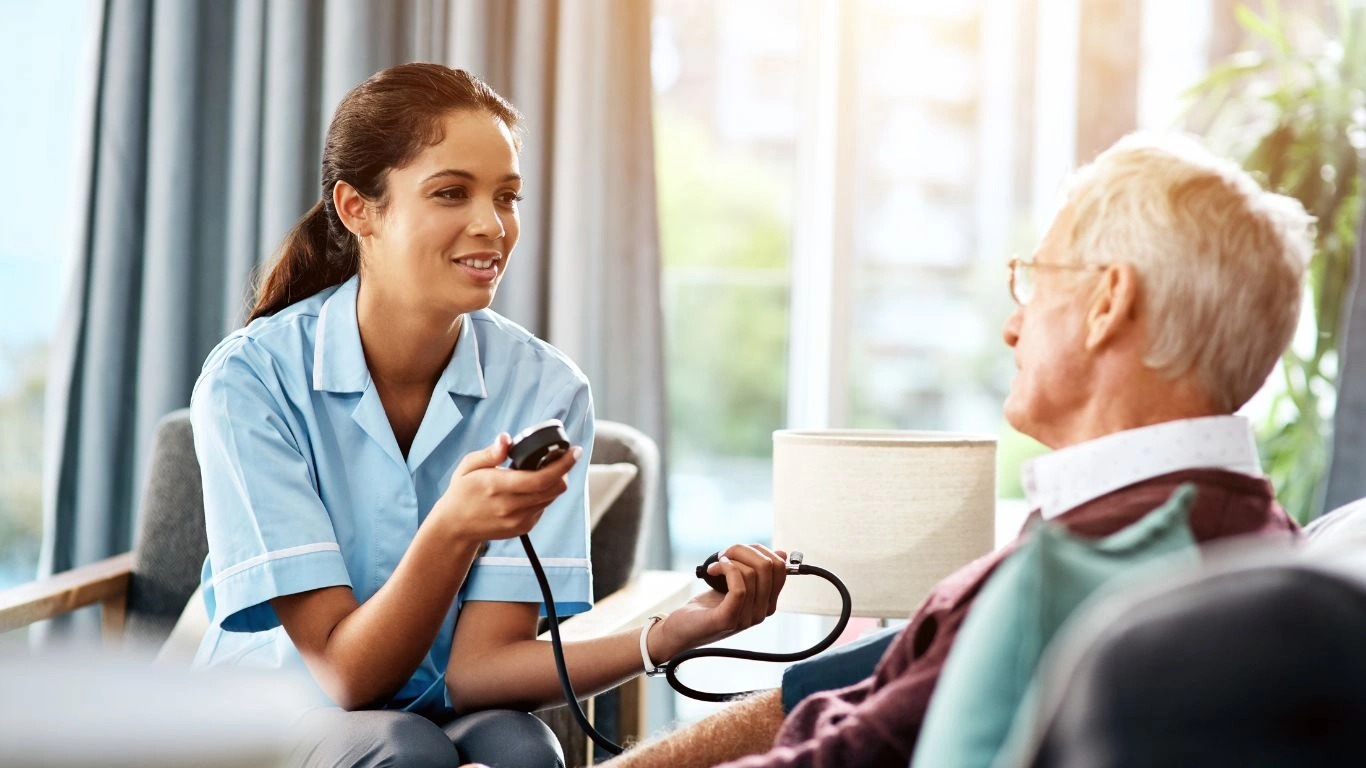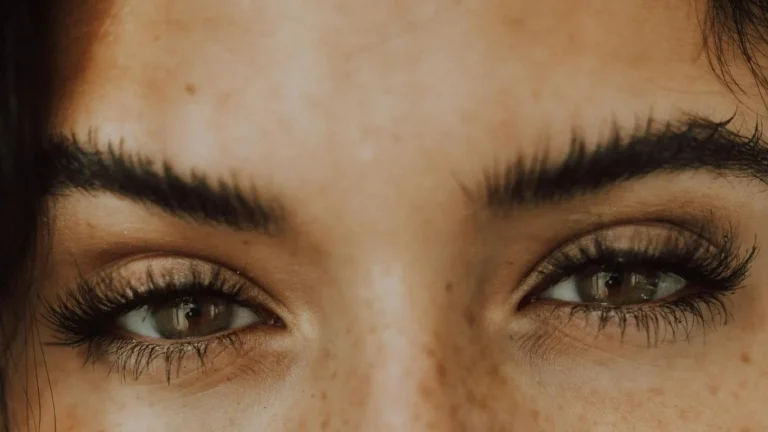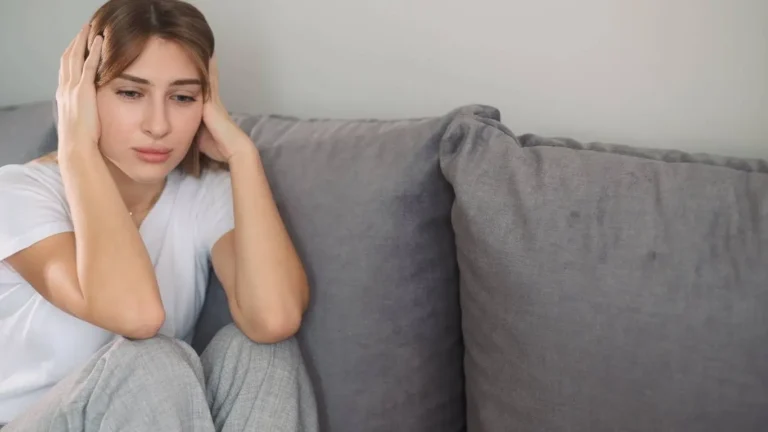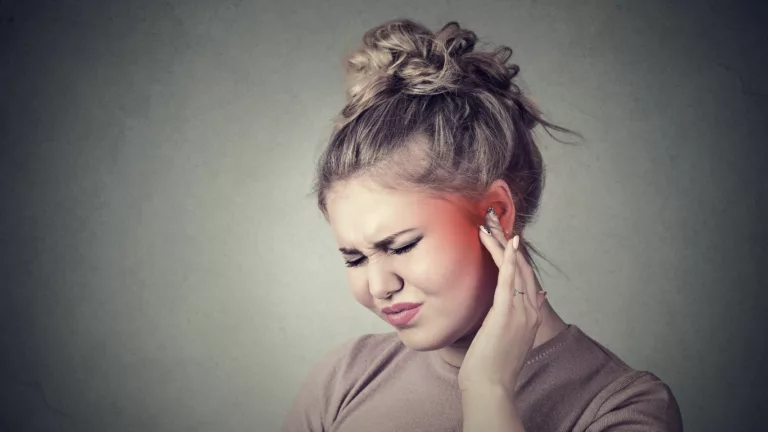High Blood Pressure and Low Libido: The Surprising Truth You Need to Know
If you’ve ever felt like high blood pressure was doing more than just messing with your heart, you’re not alone. One of the things that often gets left out of the conversation is the high blood pressure and low libido connection. It’s not exactly a dinner table topic, right? But as someone who’s spent years working with patients on managing hypertension, I can tell you this—sexual health and blood pressure are more connected than most folks realize. And it’s not just about the physical mechanics. There’s a web of hormones, stress, medications, and even emotional well-being tangled up in this.
How High Blood Pressure Messes with More Than Just Your Arteries
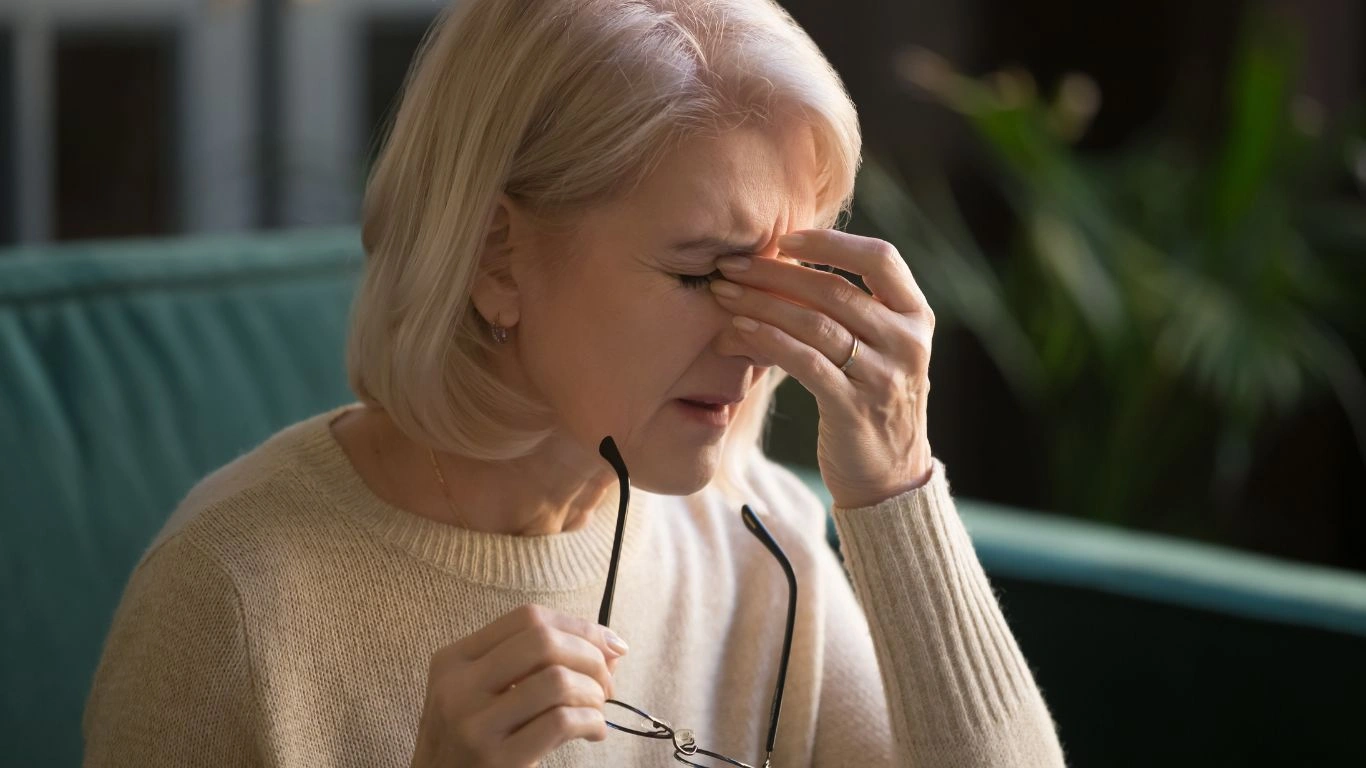
Let’s be real—hypertension doesn’t just sneak up and hit you with a heart attack. It works in subtle, frustrating ways over time, and one of the first places it starts chipping away is your overall quality of life. That includes your sex life. Yup, it’s not just about age or stress or “being tired.” For a lot of my patients, libido started fading long before they even knew their blood pressure was high.
Here’s the kicker—hypertension causes damage to the blood vessels, including those that supply blood to your pelvic region. And when blood flow is compromised, sexual arousal becomes more difficult—plain and simple. Erectile dysfunction in men and decreased lubrication or arousal in women can both be signs of vascular issues. This isn’t just a male issue either, even though that’s where most of the research and ads tend to focus.
The Quiet Symptoms No One Talks About
When I’m doing checkups, I always ask about energy, mood, and yes—sexual health. You’d be surprised how often someone leans in and says something like, “Honestly, Doc… things just aren’t the same.” And it’s not always physical. High blood pressure can mess with your head too—causing anxiety, fatigue, and even depression. And guess what all of those things do to your sex drive?
- Increased cortisol levels can tank your libido
- Persistent fatigue leaves little room for intimacy
- Relationship strain due to chronic health issues
- Low self-esteem linked to health-related body image changes
It becomes a cycle—high blood pressure affects your body, which affects your confidence and mood, which further impacts your interest in intimacy. I’ve had more than a few patients burst into tears because they thought it was “just them” or that they were “broken.” You’re not broken. This is real, and it’s common.
Medications: Helping and Hurting at the Same Time

Okay, so let’s talk about the elephant in the room—meds. While they’re literally lifesavers, some blood pressure medications can put a serious damper on your libido. I’ve had this conversation with so many patients: “Wait, are my pills the reason I’m not in the mood anymore?”
Possibly. Not all blood pressure meds affect libido the same way, but here are some usual suspects:
- Beta blockers: They slow the heart rate and can also dull the nervous system, reducing arousal and energy.
- Diuretics: Sometimes called “water pills,” these can deplete zinc and reduce blood flow, leading to sexual dysfunction.
- Central alpha agonists: They can mess with brain chemistry and lower desire.
Now, does that mean you stop taking your meds? Absolutely not. But what I do with my patients is talk openly about these side effects. Sometimes we adjust doses, switch to a different class of drugs, or pair treatment with lifestyle changes to reduce reliance on medication. It’s all about balance and communication.
Yes, There Are Blood Pressure Meds That Don’t Kill the Mood
Not all meds are libido-killers. In fact, ACE inhibitors and ARBs tend to have fewer sexual side effects, and in some cases, may even improve things. That’s why knowing your options—and working with a doc who listens—is crucial. You shouldn’t have to sacrifice your sex life for your heart health.
Don’t Ignore the Mental Load of Living with Hypertension
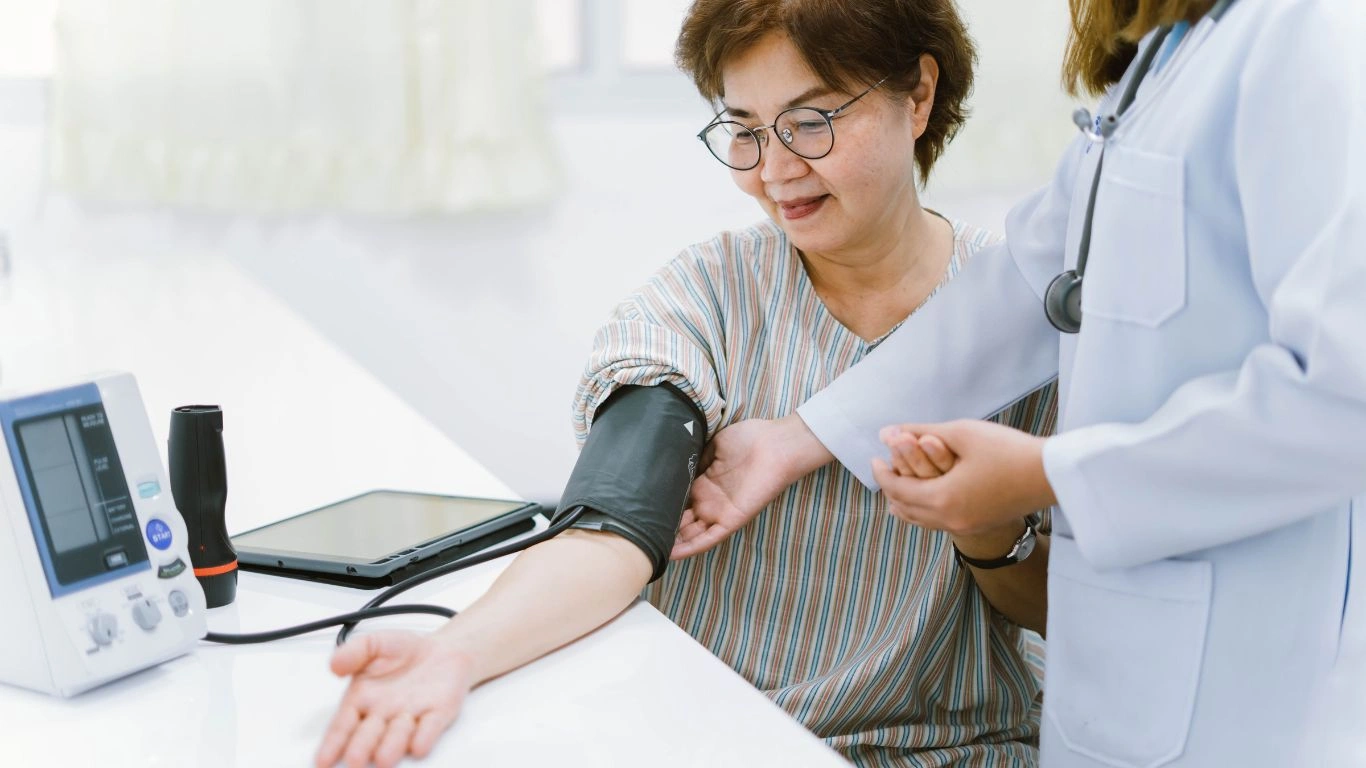
One thing I wish more people understood is how exhausting it can be to live with a chronic condition like high blood pressure. It’s not just “take your pills and you’re good.” There’s meal planning, appointments, symptom tracking, the guilt of missing a workout, the stress of daily monitoring—and then you’re expected to just flip a switch and be sexy at night? Come on. That’s a lot.
Chronic stress is a major libido-killer. It messes with your sleep, your hormones, your headspace—and all of that can make intimacy feel more like a chore than a pleasure. That’s something I hear from both men and women, by the way. This isn’t a gender-specific issue. It’s a human issue.
Quick Wins I Often Recommend to My Patients
- Short mindfulness exercises (even 5 minutes can reset your day)
- Walking after dinner to help digestion and de-stress
- Laughing together—seriously, joy is medicine
- Journaling to identify emotional triggers and celebrate small wins
Trust me, I’ve been on the other side of the exam room, too—trying to juggle life, work, family, health, and still have enough left in the tank to feel desirable. It’s not always easy. But you’re not alone, and there are ways to get that spark back while keeping your blood pressure in check.
Let’s Talk Hormones: The Overlooked Link Between High Blood Pressure and Low Libido

Alright, now let’s dig into the hormone side of things—because trust me, this piece is often the missing puzzle. When you’ve got high blood pressure, you’re likely dealing with hormone imbalances whether you know it or not. And hormones? They’re basically the control center for your libido.
Here’s something I see a lot: patients come in thinking their lack of desire is “just aging.” Sure, hormones shift as we get older, but hypertension can accelerate that shift. High blood pressure affects how your body regulates key sex hormones like testosterone, estrogen, and even DHEA. These hormones don’t just influence desire—they play a role in energy, mood, and even how confident you feel in your own skin.
For men, low testosterone is a biggie. For women, fluctuations in estrogen and progesterone (especially during perimenopause) can make intimacy feel more like a struggle than a joy. Add antihypertensive meds to the mix and you’ve got a perfect storm.
How Cortisol Hijacks Your Bedroom Mojo
Let’s not forget cortisol—that stress hormone that seems to show up everywhere these days. With chronic high blood pressure, your body is under near-constant stress, even if you feel “fine.” And cortisol? It loves to throw your libido off a cliff.
Chronically high cortisol levels can suppress your sex hormones, mess with your sleep, and create a general sense of burnout. And burned out people aren’t exactly throwing rose petals on the bed, right?
The Role of Lifestyle: Small Changes, Big Impact
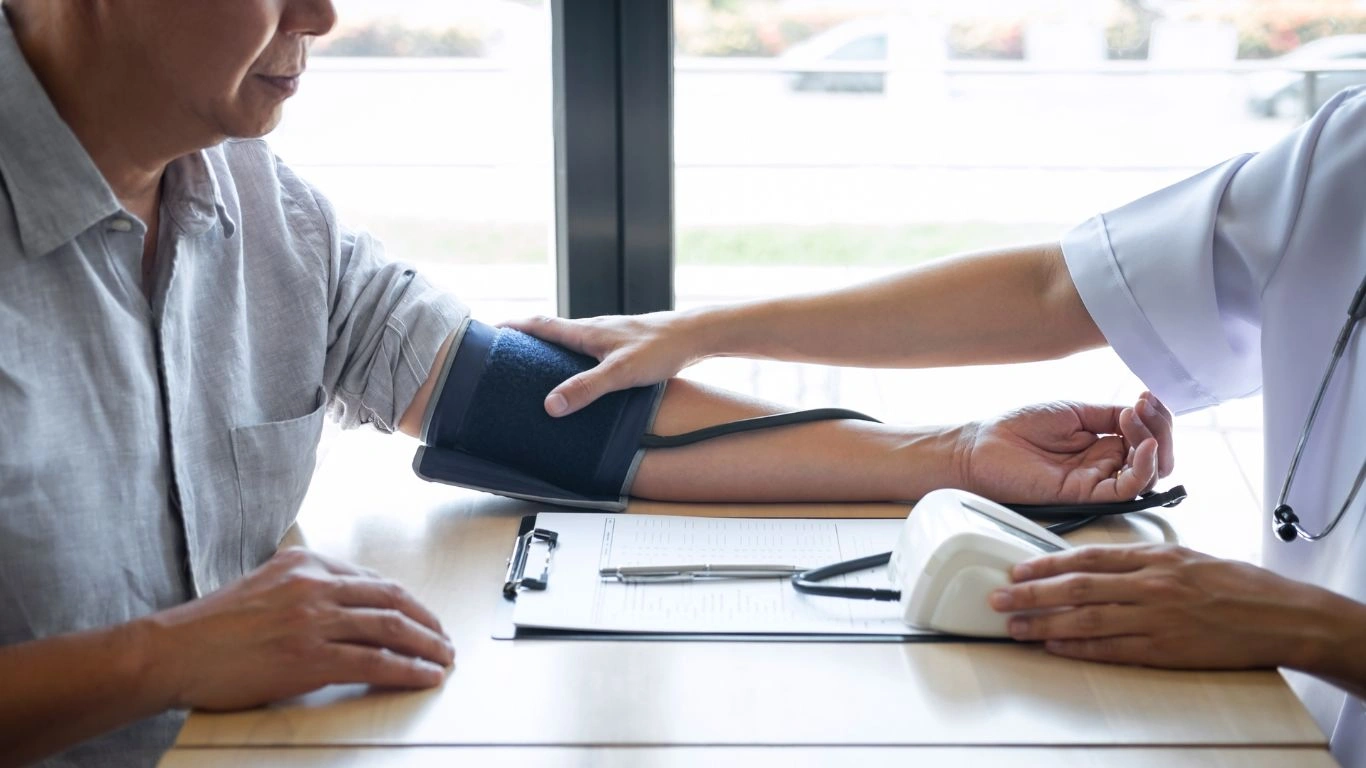
Here’s where I always get excited—because this is the part where we start taking power back. You might not be able to control your genetics, but you can absolutely influence your lifestyle. And that has a massive effect on both blood pressure and sexual health.
Some of my most rewarding patient transformations have started with simple tweaks. Nothing crazy. Just consistent, mindful steps. Here’s a breakdown of things I often recommend:
- Exercise that actually feels good: You don’t need to train for a marathon. A brisk walk, some yoga, dancing in the kitchen—it all counts. Physical movement improves blood flow, reduces cortisol, and naturally boosts libido.
- Food that supports your heart and hormones: Think Mediterranean-style—lots of leafy greens, healthy fats, berries, nuts. Ditching heavy sodium and processed junk can improve both your blood pressure and your energy in surprisingly short order.
- Quality sleep: This one’s non-negotiable. Poor sleep ramps up stress hormones and leaves you drained. Prioritizing 7–9 hours a night does more for libido than people expect.
- Connection and intimacy outside of sex: Sometimes couples need to rebuild closeness in little ways before sex feels natural again—holding hands, cuddling, laughing together. That emotional bond is medicine in itself.
One of my long-time patients—a retired teacher in her late 50s—told me she and her husband started walking every evening after dinner. No pressure, no big plans, just movement and talking. Not only did her blood pressure start to improve, but she said, “We feel like we’re dating again.” Those kinds of stories? Gold.
The Gut-Heart-Libido Triangle
Here’s something that’s just starting to get attention in the research world: your gut microbiome might also be influencing both your blood pressure and your libido. Wild, right?
A gut that’s out of balance (due to poor diet, stress, antibiotics, etc.) can lead to inflammation, which contributes to both hypertension and hormonal imbalances. And when your hormones are off, your libido often follows.
Probiotics, fermented foods, and fiber-rich meals aren’t just trendy—they actually support better vascular health and hormonal harmony. I tell patients: “Healthy gut, happy hormones.” It’s not a quick fix, but over time, it’s a solid foundation.
Communication with Your Partner: The Missing Piece
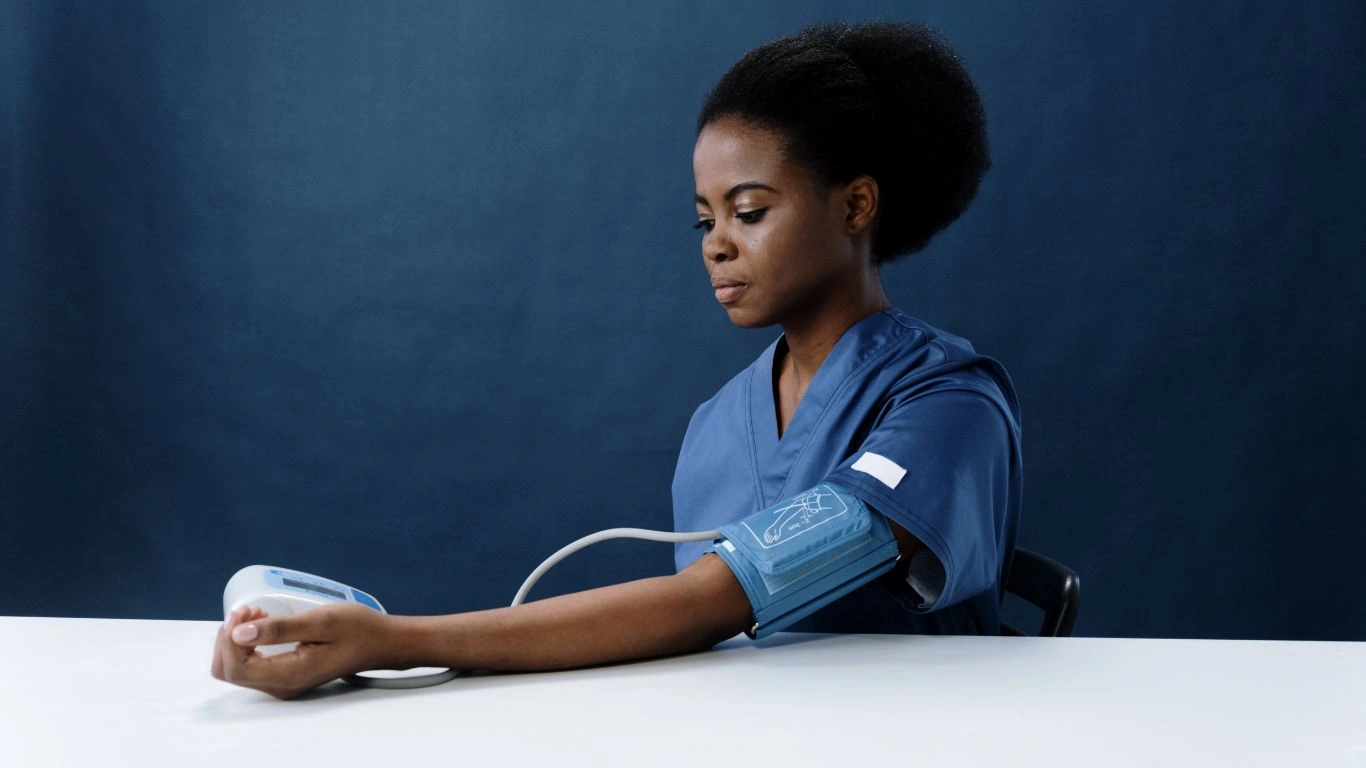
Now, let’s address something that often gets overlooked—talking about this stuff. If you’re in a relationship, your partner is probably noticing the shift too, even if no one’s said it out loud yet. And keeping it all bottled up? That just builds tension and miscommunication.
I’ve had couples come in together, both feeling guilty and confused, thinking the other person was losing interest. In reality, they were both just overwhelmed by health issues, meds, stress, and life. One open conversation can seriously change everything.
Here’s how to start:
- Choose a time when you’re both relaxed (not during an argument or right before bed)
- Speak from the heart: “I’ve been feeling different lately and I think my blood pressure might be playing a role”
- Invite them into the solution: “Can we try figuring this out together?”
Intimacy isn’t just about physical connection. Emotional safety and support are just as crucial. And when you start addressing the health piece as a team, it strengthens everything else along the way.
What I Wish More People Knew
If there’s one thing I wish I could tell everyone dealing with high blood pressure and low libido, it’s this: you are not alone, and this is not your fault. These aren’t separate issues—they’re connected, and there are solutions.
I’ve worked with so many patients who thought they had to just “deal with it.” But when we took the time to peel back the layers—to look at the physical, emotional, hormonal, and relational pieces—it all started to make sense. And with the right support, healing is absolutely possible.
Rebuilding Intimacy When High Blood Pressure Has Taken a Toll

So now that we’ve laid out how high blood pressure and low libido are connected—from blood flow to hormones to emotional weight—let’s talk about what rebuilding actually looks like. Because yes, it’s absolutely possible to reconnect with your partner and rediscover a fulfilling sex life, even while managing hypertension.
In my practice, I’ve seen couples in their 40s, 50s, and well into their 70s rediscover closeness once they started treating libido like a shared health journey—not a personal failure. And that shift? It changes everything. Intimacy becomes something you work on together, not something you avoid or silently resent.
Reframing What Intimacy Means
This is a big one. When libido drops, especially due to a health issue, it’s easy to start seeing intimacy as this big performance you’re not up for. But that’s missing the point. Intimacy isn’t always about sex. Sometimes, it’s about finding new ways to feel connected that fit where you are right now.
- Cooking a meal together with soft music on in the background
- Reading in bed while holding hands (seriously—it matters)
- Complimenting each other intentionally throughout the week
- Making time for “non-goal-oriented” touch—like back rubs or simply cuddling
One of my favorite patient stories came from a man in his early 60s who had been battling hypertension for over a decade. He told me, “Doc, we started taking slow showers together. No pressure. Just time. That brought us closer than any prescription ever could.”
Mind-Body Techniques That Support Libido and BP
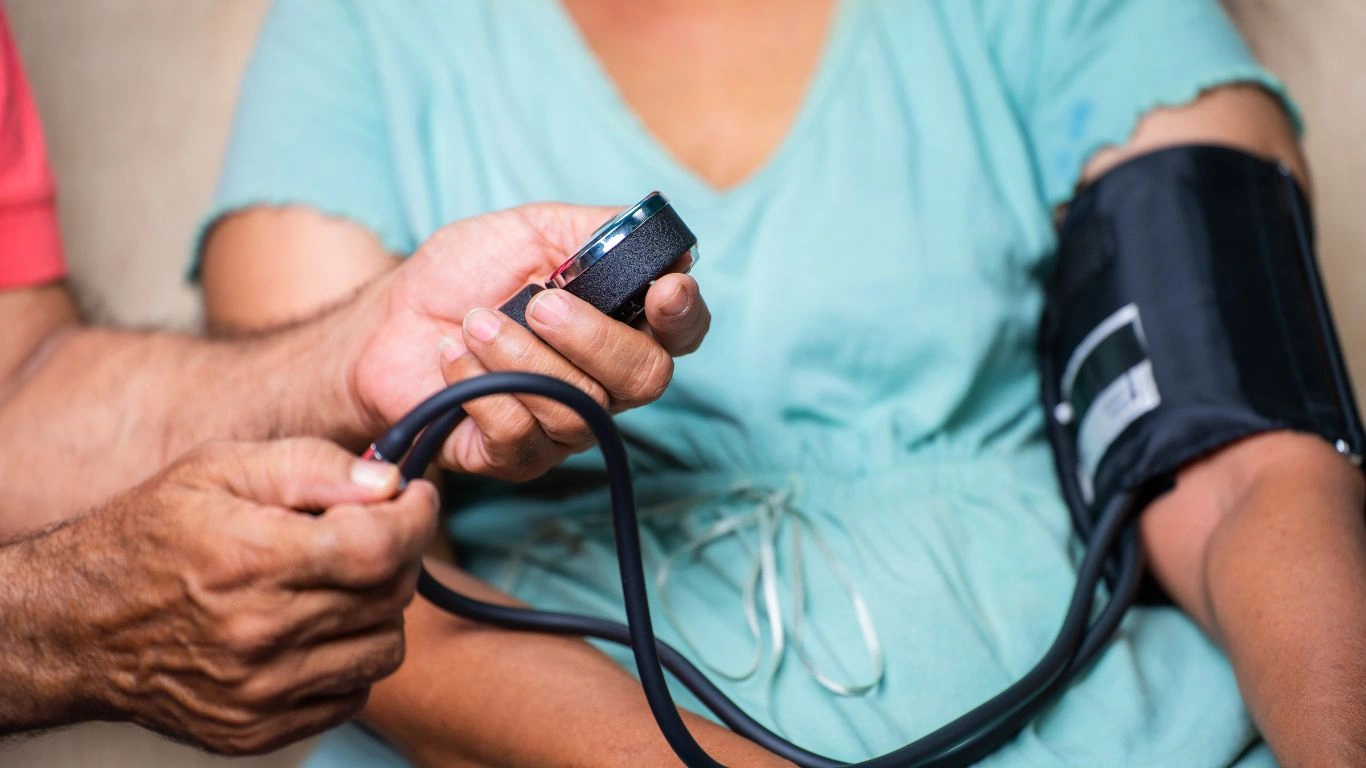
Something I wish more people knew: your brain is just as much a part of your sex life as your body. When you’re stuck in fight-or-flight mode (which happens a lot with chronic hypertension), it’s incredibly hard to access feelings of desire, safety, or pleasure.
This is where mind-body practices come in clutch. They don’t just help with stress—they physically lower blood pressure and increase parasympathetic nervous system activity (aka the “rest and digest” mode, where intimacy thrives).
My top go-to techniques for patients:
- Mindfulness meditation: Just 10 minutes a day of sitting with your breath can start to retrain your nervous system. Apps like Headspace or Calm are great places to start.
- Breathwork: Deep diaphragmatic breathing (inhale for 4, hold for 7, exhale for 8) slows the heart rate and eases blood pressure spikes.
- Progressive muscle relaxation: Especially helpful at bedtime. It helps with both sleep and body awareness, which improves physical connection.
- Gratitude journaling: This might sound cheesy, but it works. Writing down three things you’re grateful for daily rewires your brain toward positivity—and that mental shift impacts libido more than people think.
It’s not about being perfect. It’s about slowly creating an internal environment that feels safe, cared for, and relaxed. That’s the foundation for libido—and honestly, for life.
When to Seek Help (And What Kind)
Sometimes, even with the right steps, things still feel… stuck. That’s when it’s time to bring in the pros. And no, it doesn’t mean there’s something wrong with you—it means you’re smart enough to ask for support when you need it.
Who to talk to:
- Your primary care physician: A great starting point for reviewing your blood pressure management plan and checking for underlying causes of low libido.
- An integrative medicine practitioner: They can help explore hormone panels, stress support, and holistic treatments.
- A sex therapist or couples counselor: Particularly helpful when emotional disconnection is compounding physical issues.
- A dietitian: Especially one familiar with cardiovascular health—they can help you build a libido-friendly and BP-friendly meal plan that doesn’t suck the joy out of eating.
What matters is finding someone who listens to you and treats the whole picture—not just the symptoms. That’s what I try to be for my patients, and it’s what every person deserves.
Addressing Stigma and Self-Blame
This part is close to my heart. So many people walk around carrying silent shame about their sex life—or lack of one—especially when they’re dealing with health issues. And society doesn’t exactly make it easy. But here’s what I tell my patients, and I’ll tell you too:
Low libido is a signal, not a flaw. It’s your body saying, “Hey, something needs attention.” That could be physical, emotional, relational, or a mix of all three. Either way, it’s a sign you’re human—not broken. And with the right approach, that spark can come back. Often in ways that feel even more meaningful than before.
References
Disclaimer
This article is for informational purposes only and is not a substitute for professional medical advice, diagnosis, or treatment. Always consult your healthcare provider with any questions or concerns you may have regarding your condition. As an Internal Medicine Physician, I draw from my clinical experience to provide insights, but your unique health situation deserves individualized care.

Dr. Gwenna Aazee is a board-certified Internal Medicine Physician with a special focus on hypertension management, chronic disease prevention, and patient education. With years of experience in both clinical practice and medical writing, she’s passionate about turning evidence-based medicine into accessible, actionable advice. Through her work at Healthusias.com, Dr. Aazee empowers readers to take charge of their health with confidence and clarity. Off the clock, she enjoys deep dives into nutrition research, long walks with her rescue pup, and simplifying medical jargon one article at a time.

